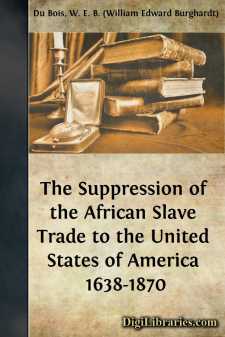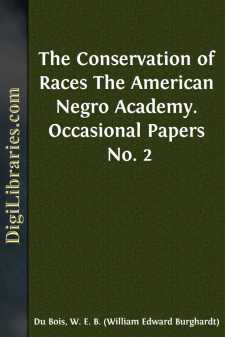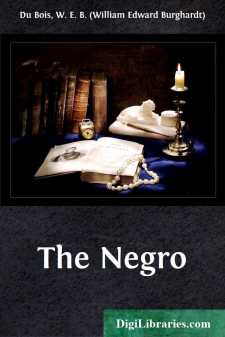Categories
- Antiques & Collectibles 13
- Architecture 36
- Art 48
- Bibles 22
- Biography & Autobiography 816
- Body, Mind & Spirit 145
- Business & Economics 28
- Children's Books 18
- Children's Fiction 14
- Computers 4
- Cooking 94
- Crafts & Hobbies 4
- Drama 346
- Education 58
- Family & Relationships 59
- Fiction 11831
- Foreign Language Study 3
- Games 19
- Gardening 17
- Health & Fitness 34
- History 1378
- House & Home 1
- Humor 147
- Juvenile Fiction 1873
- Juvenile Nonfiction 202
- Language Arts & Disciplines 89
- Law 16
- Literary Collections 686
- Literary Criticism 179
- Mathematics 13
- Medical 41
- Music 40
- Nature 179
- Non-Classifiable 1768
- Performing Arts 7
- Periodicals 1453
- Philosophy 66
- Photography 2
- Poetry 897
- Political Science 203
- Psychology 45
- Reference 154
- Religion 516
- Science 126
- Self-Help 86
- Social Science 82
- Sports & Recreation 34
- Study Aids 3
- Technology & Engineering 59
- Transportation 23
- Travel 463
- True Crime 29
Our website is made possible by displaying online advertisements to our visitors.
Please consider supporting us by disabling your ad blocker.
Darkwater Voices from Within the Veil
Categories:
Description:
Excerpt
I
THE SHADOW OF YEARS
I was born by a golden river and in the shadow of two great hills, five years after the Emancipation Proclamation. The house was quaint, with clapboards running up and down, neatly trimmed, and there were five rooms, a tiny porch, a rosy front yard, and unbelievably delicious strawberries in the rear. A South Carolinian, lately come to the Berkshire Hills, owned all this—tall, thin, and black, with golden earrings, and given to religious trances. We were his transient tenants for the time.
My own people were part of a great clan. Fully two hundred years before, Tom Burghardt had come through the western pass from the Hudson with his Dutch captor, "Coenraet Burghardt," sullen in his slavery and achieving his freedom by volunteering for the Revolution at a time of sudden alarm. His wife was a little, black, Bantu woman, who never became reconciled to this strange land; she clasped her knees and rocked and crooned:
"Do bana coba—gene me, gene me!Ben d'nuli, ben d'le—"
Tom died about 1787, but of him came many sons, and one, Jack, who helped in the War of 1812. Of Jack and his wife, Violet, was born a mighty family, splendidly named: Harlow and Ira, Cloë, Lucinda, Maria, and Othello! I dimly remember my grandfather, Othello,—or "Uncle Tallow,"—a brown man, strong-voiced and redolent with tobacco, who sat stiffly in a great high chair because his hip was broken. He was probably a bit lazy and given to wassail. At any rate, grandmother had a shrewish tongue and often berated him. This grandmother was Sarah—"Aunt Sally"—a stern, tall, Dutch-African woman, beak-nosed, but beautiful-eyed and golden-skinned. Ten or more children were theirs, of whom the youngest was Mary, my mother.
Mother was dark shining bronze, with a tiny ripple in her black hair, black-eyed, with a heavy, kind face. She gave one the impression of infinite patience, but a curious determination was concealed in her softness. The family were small farmers on Egremont Plain, between Great Barrington and Sheffield, Massachusetts. The bits of land were too small to support the great families born on them and we were always poor. I never remember being cold or hungry, but I do remember that shoes and coal, and sometimes flour, caused mother moments of anxious thought in winter, and a new suit was an event!
At about the time of my birth economic pressure was transmuting the family generally from farmers to "hired" help. Some revolted and migrated westward, others went cityward as cooks and barbers. Mother worked for some years at house service in Great Barrington, and after a disappointed love episode with a cousin, who went to California, she met and married Alfred Du Bois and went to town to live by the golden river where I was born.
Alfred, my father, must have seemed a splendid vision in that little valley under the shelter of those mighty hills. He was small and beautiful of face and feature, just tinted with the sun, his curly hair chiefly revealing his kinship to Africa. In nature he was a dreamer,—romantic, indolent, kind, unreliable. He had in him the making of a poet, an adventurer, or a Beloved Vagabond, according to the life that closed round him; and that life gave him all too little. His father, Alexander Du Bois, cloaked under a stern, austere demeanor a passionate revolt against the world. He, too, was small, but squarish. I remember him as I saw him first, in his home in New Bedford,—white hair close-cropped; a seamed, hard face, but high in tone, with a gray eye that could twinkle or glare.
Long years before him Louis XIV drove two Huguenots, Jacques and Louis Du Bois, into wild Ulster County, New York. One of them in the third or fourth generation had a descendant, Dr. James Du Bois, a gay, rich bachelor, who made his money in the Bahamas, where he and the Gilberts had plantations. There he took a beautiful little mulatto slave as his mistress, and two sons were born: Alexander in 1803 and John, later. They were fine, straight, clear-eyed boys, white enough to "pass." He brought them to America and put Alexander in the celebrated Cheshire School, in Connecticut. Here he often visited him, but one last time, fell dead. He left no will, and his relations made short shrift of these sons. They gathered in the property, apprenticed grandfather to a shoemaker; then dropped him.
Grandfather took his bitter dose like a thoroughbred. Wild as was his inner revolt against this treatment, he uttered no word against the thieves and made no plea. He tried his fortunes here and in Haiti, where, during his short, restless sojourn, my own father was born....








